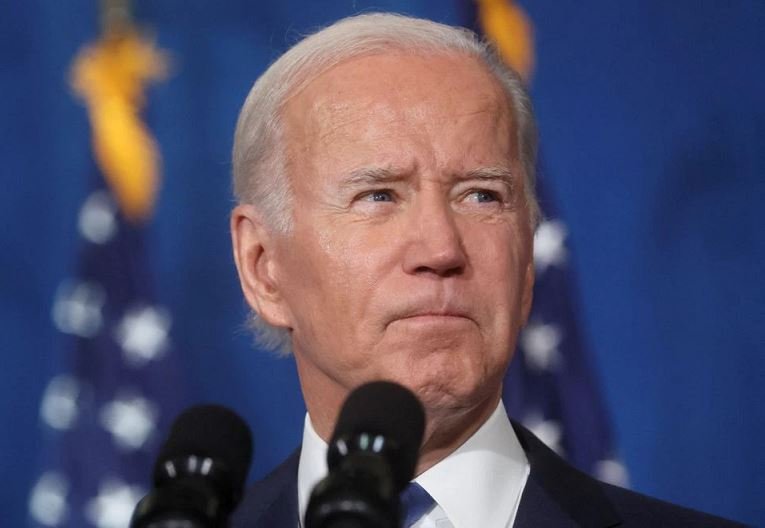US President Joe Biden has agreed to provide Ukraine with anti-personnel land mines, according to a US army official.
The move is seen as an attempt to impede Russian forces, who have been slowly pushing in Ukraine’s east for months.
The official, who spoke on the condition of anonymity, said the mines would be shipped soon and that Washington expected them to be used on Ukrainian territory.
The official further stated that Ukraine has agreed to not employing the mines in densely populated regions.
Separately, the US State Department said it would close its embassy in Kyiv after it “received specific information of a potential significant air attack on 20 November.”
“Out of an abundance of caution, the embassy will be closed, and embassy employees are being instructed to shelter in place,” it said in a statement.
“The US Embassy recommends US citizens be prepared to immediately shelter in the event an air alert is announced.”
The embassy has previously issued similar warnings about possible air attacks at New Year’s and around Ukraine’s Independence Day in August.
Following the US threat, the Italian and Greek embassies announced that they would likewise be temporarily closed.
Overnight, both Ukraine and Russia reported large drone assaults on their lands. It was not immediately clear whether there were any casualties.
The shipment of anti-personnel land mines is the latest measure by the leaving US administration to support Ukraine’s military effort before Donald Trump arrives to the White House on January 20.
Mines are critical for Ukraine’s military as they strive to impede Russian advances up and down the lengthy eastern front line.
Russia’s current tactics involve deploying small groups of soldiers, often as little as three or five men, to stroll or ride motorcycles behind Ukrainian defences. These men are frequently slain or caught.
However, Ukrainian analysts report that in besieged towns such as Chasiv Yar and Kurakhove, squads are often dispatched every 20 minutes for hours at a time, causing challenges for Ukrainian troops.
“It’s very difficult to deal with,” Serhiy Kuzan from the Ukrainian Security and Cooperation Centre told the BBC. “We need more anti-personnel mines.”
Much of the fighting is taking place in rural Donbas, with wooded areas sandwiched between vast expanses of farmland.
With the majority of the civilian population already evacuated, Ukraine claims that the tactical use of “non-persistent” mines offers little risk to people and is critical to stopping Russia’s advance.
Russia has liberally employed landmines since the start of its full-scale invasion of Ukraine in February 2022, but international objections to the deployment of such weapons on the basis that they endanger people stopped the Biden administration from authorising them.
The US defence official acknowledged to the BBC that Ukraine had promised to employ only mines that would be active for a limited time.
The US “non-persistent” mines differ from Russia’s in that they become inert after a predetermined amount of time, which can range from four hours to two weeks.
They are electronically fused and need battery power to detonate. When the battery dies, they will not detonate.
Washington has already provided anti-tank mines to Ukraine, but the anti-personnel land mines, which can be deployed quickly, are intended to slow ground forces’ advances.
Russia and the United States are not signatories to the Ottawa Convention, which prohibits the use and export of anti-personnel landmines, but Ukraine is.
However, since Russia’s full-scale invasion, more than 20% of Ukrainian territory is thought to have been poisoned by mines.
Previously, it was verified that US-made longer-range Army Tactical Missile System (Atacms) missiles had struck targets in Russia just days after allegations surfaced that the White House had authorised clearance for their use.
On Tuesday morning, Russia’s defence ministry said the strike targeted the Bryansk region, which borders Ukraine to the north.
It stated that five missiles had been shot down and one had caused damage, with pieces causing a fire at a military base.
However, two US sources said initial assessments suggested Russia intercepted only two of Ukraine’s eight missiles.
The BBC has been unable to independently verify the contradictory data. Russian Foreign Minister Sergei Lavrov accused Washington of seeking to aggravate the crisis. The Kremlin has promised to react.
On Tuesday, Russian President Vladimir Putin authorised amendments to Russia’s nuclear strategy, outlining additional criteria under which the country would consider utilising its arsenal.
It now states that an attack from a non-nuclear state backed by a nuclear power will be considered a joint assault on Russia.











